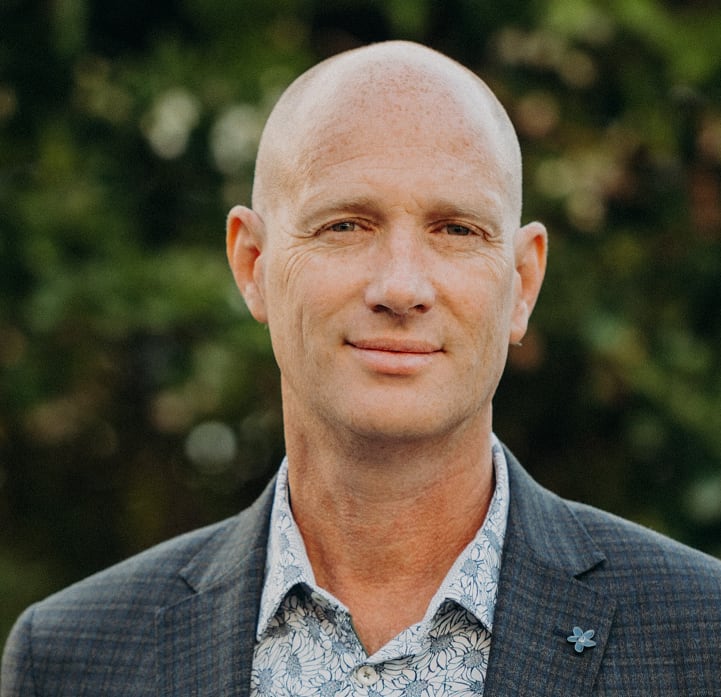A pharmacist and also the founder of New Zealand’s online pharmacy Pharmacy Direct, Greg’s interest with longevity and health span was ignited during his time as the CEO of MitoQ 12 years back.
MitoQ is also a New Zealand-based biotech firm that specialises in developing mitochondrial supplements for enhancing health span.
During his time there, the company was working on commercialising a novel antioxidant targeting the mitochondria.
While his fascination with the mitochondria had taken root during his seven years at MitoQ, it didn’t just stop there.
The idea of targeting not just the mitochondria - “the powerhouse of a cell” - but also the entire cell, grew in him.
“My entire world was [about] mitochondria. I realised that if you were to take your car for servicing and if you just look after the engines, then you may have a problem, because you’re not looking after the brakes, you’re not looking after the window wipes, you’re not looking after everything that makes a car safe.
“So when I looked at that, I thought, what we need to look at, is the whole cell, and so, this is really the genesis of SRW and that’s how we kicked off,” he recalled.
He believes that if it is possible to modify the energetics of a cell, then it is also possible to modify the other elements of a cell as well.
Fast forward to today, it will be five years since he founded SRW Laboratories - the short form for Science Research Wellness Laboratories come May 2025.

Over the years, the company has developed a series of nutraceuticals targeting the hallmarks of ageing.
The company is also working with Insilico Medicine in using artificial intelligence (AI) to identify compounds that affect pathways linked to ageing.
The purpose is to create the next-generation versions of the firm’s existing Cel Protocol series of products.
Beyond products, the company is also on track with new research and clinical trials.
One of the studies, which it recently concluded in the US, has shown how an intervention comprising of supplements from the Cel Protocol series, as well as changes in lifestyle habits, such as going for walks and practicing mindfulness, could lead to biological age reversal.
“What we wanted to do is to assess the impact of a strategy to target the hallmarks of ageing, and we’ve had amazing results, and I compare it to what has happened recently, where fish oil omega-3 was used for a study, and they’ve managed to get four month age reversal after three years of intervention.”
He was referring to new findings from the DO-HEALTH trial published on Nature Aging on February 3.
The study reported that omega-3 supplementation alone has slowed DNA methylation clocks, namely PhenoAge, GrimAge2 and DunedinPACE.
“For our trial, which we’ll be announcing the results very shortly, we were able to get close to six years [of age reversal] with just one year of intervention.
“And beyond biological act reversal, we’ve also gotten physiological age reversal.
“The people that came out of the study were stronger, they weighed less and they were slimmer, so that’s indicative of someone who’s actually a younger person that’s come out of the trial; a younger phenotype,” he said.
XPRIZE submission
Greg is seeking to validate the findings of the trial in a larger scale study involving 1,000 individuals between 35 and 85 years old.
This is a global study that the company is conducting as its participation in XPRIZE Healthspan. This is a seven-year global competition that rewards US$101m to solutions that revolutionise the ways to approaching human ageing.
The participants will be randomised and studied based on four age groups: from 35 to 50, 50 to 65, 65 to 80, and 80 years old onwards.
The participants will be randomised to adopt just healthy lifestyle habits, or just taking supplements without lifestyle modifications, or both.
The purpose is to find out how different sets of intervention affect different age groups.
Science fiction or not?
Concepts like biological age reversal, however, does seem like science fiction to some people, based on Greg’s observations.
“I used to talk in front of audiences and explain that we’re all going to live to 150 and I would lose the audience straightaway and you can just see that everybody loses interest immediately. Cause they were like ‘What’s this idiot talking about?‘”
Whenever a situation like this pops up, he believes that revisiting the scientific milestones achieved in the past century can help quell doubts and disbelief.
“In the last 100 years, we have gone from an average age of 35 in terms of health span and lifespan, and we’ve done an incredible job of getting people to an average lifespan that’s getting closer to 80.
“Once people understood how far we’ve come, then all of a sudden, their minds open to the fact that we’ve got a long way that we’ve got to go.”
He is hopeful that once it is proven that there are methods available to target the hallmarks of ageing, this will open up a plethora of discoveries - just like how the discovery of penicillin has shaken up the medical field.
It was about 100 years ago since we discovered penicillin, and 50 years ago, once we’ve understood what penicillin was and what it was doing, a thousand flowers bloomed in terms of all the antibiotics that we’ve got now, which have given us incredible protection. So I think once we prove the concept that we can target the hallmarks of ageing, then this is going to unleash all sorts of discoveries...
Listen to the podcast to find out more.




